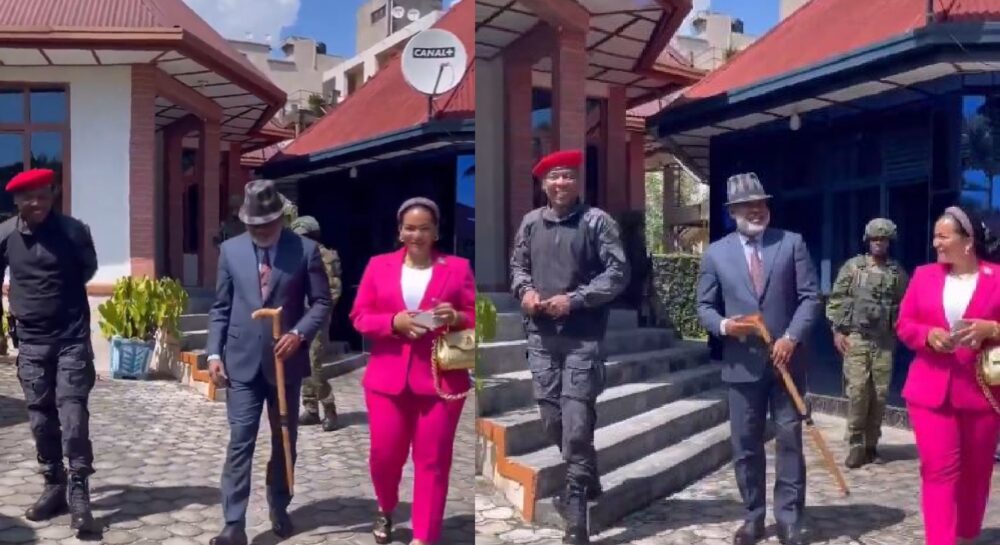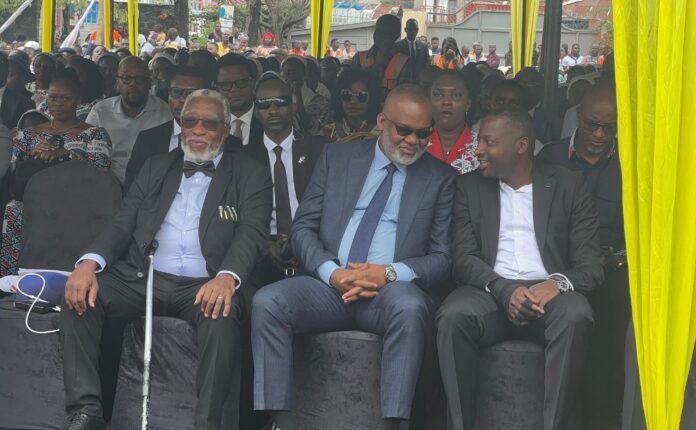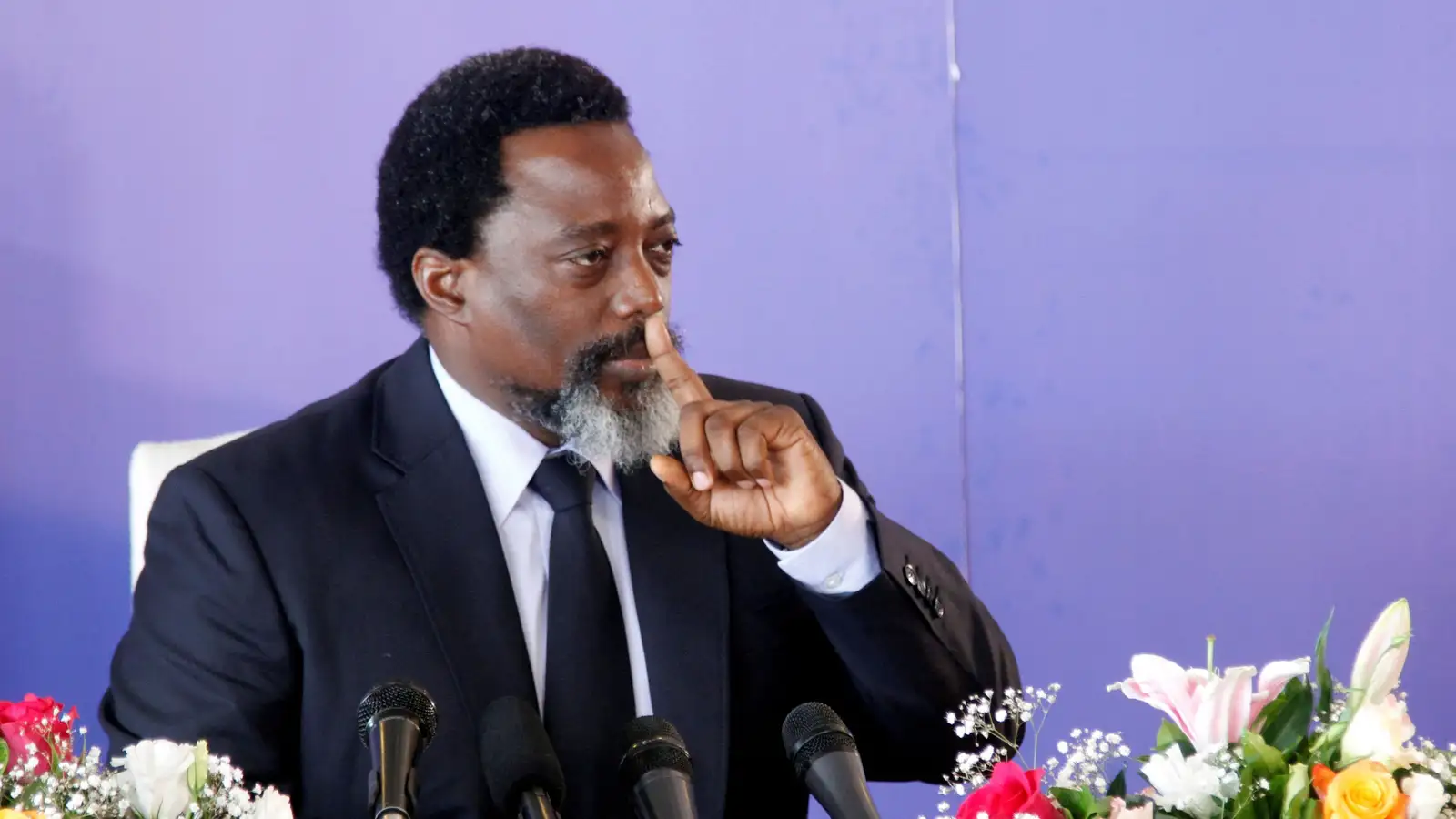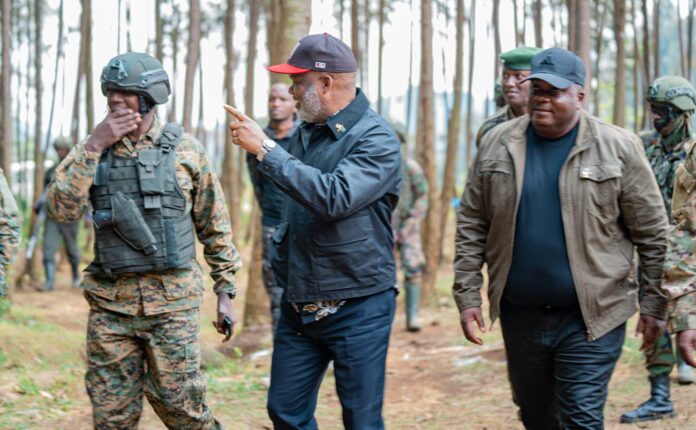In a moment loaded with political symbolism, Colonel Willy Ngoma, the official spokesperson of the Movement du 23 Mars (M23), was received by Corneille Nangaa, former president of the Independent National Electoral Commission (CENI) and current coordinator of the Alliance Fleuve Congo (AFC). The Colonel was accompanied by his wife, offering a rare glimpse of the human side behind a man often viewed only through a military lens.
Note: Company, Blog, Church websites are free.
This meeting, which took place discreetly but was later shared via social media, is now sparking a national conversation. Far from being a mere photo opportunity, it is being interpreted by some observers as a signal of shifting alliances and the emergence of a new political paradigm one in which dialogue replaces demonization.
Colonel Willy Ngoma has long served as the voice of the M23, a movement often labelled as a movement group by the Congolese government, but which considers itself a political force advocating for justice, inclusion, and equal rights for marginalized populations, particularly in eastern Congo.
For many in the Kivu region, Ngoma’s composed media presence and strategic messaging have transformed public perceptions. “We are not just combatants,” he said in a recent interview. “We are Congolese citizens demanding to be heard.
The decision to appear with his wife, away from the battlefield and in civilian attire, was both deliberate and symbolic. It underscored the M23’s readiness to engage politically, not just militarily.
Corneille Nangaa’s political comeback via the Alliance Fleuve Congo has shaken up the Congolese landscape. Known for his institutional experience and critical stance toward Kinshasa’s centralization of power, Nangaa has called for a new national contract one built on equity, inclusion, and truth.
His meeting with Ngoma is more than symbolic. Both men share a growing frustration with what they view as Kinshasa’s failure to deliver peace and development to all corners of the country. In the East, where conflict has raged for decades, such meetings are increasingly seen not as acts of betrayal, but as bold steps toward reconciliation.
An AFC insider said, “If we truly want peace, we must be willing to talk to those who carry arms not because we support violence, but because they represent voices long ignored.”
While government officials and critics may interpret this encounter as provocative, supporters argue it’s time to reframe the national narrative. The M23 is not a foreign proxy, they say, but a symptom of internal exclusion and unresolved grievances.
The Colonel’s presence at this high-level political meeting sends a message: military resistance may have been the path taken, but political engagement is now on the table. His participation in such a forum suggests a willingness to transition from confrontation to conversation if the environment allows.
Beyond the politics, the Colonel’s wife sitting beside him was perhaps the most powerful symbol of the day. It served as a reminder that behind uniforms and frontlines are families, communities, and human beings seeking peace, security, and a future in their own country.
“This was more than a political meeting,” said one local analyst. “It was a human gesture, a message that even those in conflict want dignity, dialogue, and peace.” As the DRC faces mounting challenges ranging from insecurity in the East to economic instability and public dissatisfaction with governance new alliances are beginning to form outside traditional frameworks. This meeting may mark the early stages of a wider national dialogue, one that could redefine who gets a seat at the table.
For now, the M23 is no longer content to be side lined or silenced. As one of its key figures makes moves into the political arena, the message is clear: “You don’t make peace by talking only to your allies you make peace by talking to your adversaries.”



